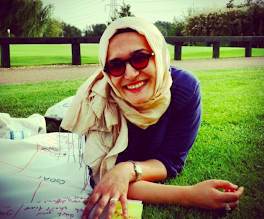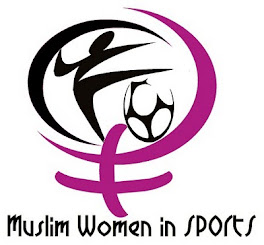For the first time ever, all 205 countries competing in the Olympic games are sending female athletes. NBC's Meredith Vieira reports and speaks with sprinter Tahmina Kohistani, the sole woman on Afghanistan's Olympic team.
When Frenchman Baron Pierre de Coubertin spearheaded the first modern Olympics in 1896, he excluded female competitors, saying it would be “impractical, uninteresting, unaesthetic, and incorrect.’’
It may have taken 116 years, but every nation participating in this year’s Olympics has offered a direct rebuttal to that antiquated opinion. “The Year of the Women’’ may be upon us in London.
For the first time in Olympic history, all 205 countries participating will send at least one female competitor. Brunei, Qatar and Saudi Arabia are sending women for the first time, while the United States will have more women (269) than men (261) for the first time in history. That’s a far cry from 1900, when women first competed in the Olympics in Paris and comprised all of 22 athletes out of the 997 overall competitors.
While sprinter Allyson Felix, swimmer Missy “The Missile” Franklin and a star-studded U.S. gymnastics team may grab the spotlight in London, Afghan sprinter Tahmina Kohistani is one of the athletes most emblematic of the strides made by female Olympians. The 22-year-old is only the third woman in the history of her war-torn nation to compete in the Olympics, and the only female on its team this year.
“Sometimes I think it is a dream, but I am here,’’ Kohistani told Meredith Vieira in an interview that aired on TODAY Tuesday. “It was very hard and very difficult for me. A lot of people are supporting me, but a lot of people don’t, and they don’t like me. They just hate me.’’
Several Middle Eastern nations came under international pressure to include women this year, resulting in the historic amount of female participation from across the world. Kohistani admitted to being torn between honoring her Muslim faith and achieving her dream of reaching the Olympics. She will run wearing a traditional head scarf and Islamic uniform.
“Some time they were saying that I’m not a good girl because I’m doing sport,’’ she told Vieira. “They were saying that I’m not a good Muslim. There are a lot of Afghan woman who (do) not accept me in my rules, in my way. They think I am wrong, but I am not wrong.’’

Jeff J Mitchell / Getty Images
Amy Le Peilbet of the U.S. women's Olympic soccer team in action during a July 19 training session in Glasgow, Scotland. Soccer is just one of the many sports that has drawn female Olympians from all 205 participating nations.
The support of her family has helped Kohistani persevere in the face of criticism. She is a long shot to get a medal in the 100-meter dash, but just her presence may have an impact on future Afghan women.
“If I got a medal, I think I will start a new way for the girls (and) women of Afghanistan,’’ she said. “They will believe themselves that they can do everything they want.’’
Increased opportunities to participate and more Olympic role models for young girls have helped drive women to the forefront in the Olympics, particularly in the United States. The introduction of the landmark Title IX legislation in 1972 that provided for equal opportunities for women in intercollegiate athletics spawned a generation of Olympic stars.

AP Photo/Boys & Girls Clubs of America/Gregory Smith
Former Olympian Dominique Dawes is deeply involved in athletic opportunities for girls and women today.
Three-time Olympian Dominique Dawes, who was part of the gold medal-winning gymnastics team at the 1996 Games, is living proof of the impact of Title IX. She continues to push athletic opportunities and fitness for women as part of Michelle Obama’s “Let’s Move!’’ campaign to combat child obesity and as a co-chair of the President’s Council on Fitness, Sports & Nutrition.
“Title IX has played a huge role,’’ Dawes told TODAY.com on a conference call. “This is the 40th anniversary of Title IX, which was responsible for opening up a number of opportunities for females in sports. I give applause to all of those pioneers that have really pushed for Title IX to give women equal opportunity.”
The increased opportunities for women in the Olympics also have been reflected in the addition of several sports in the past decade. In 2000, tae kwon do, weight lifting and triathlon were added, and women’s boxing will make its debut in London.
That’s a far cry from the 1900 Olympics, when women only participated in yachting, equestrian, croquet, tennis and golf. Margaret Abbott made history when she became the first American woman to finish first in an event, winning the nine-hole golf tournament.
Even women playing non-mainstream sports like beach volleyball are now household names, as Misty May-Treanor and Kerri Walsh are known internationally after winning gold medals in 2004 and 2008.
“I’m very excited to hear that us women are taking advantage of opportunities,’’ Dawes said. “It’s not about having more people (in the Olympics); it’s about us reaching our full potential and taking advantage of opportunities to the best of our abilities.’’
Source: http://todayinlondonblog.today.msnbc.msn.com/_news/2012/07/24/12926129-for-first-time-women-from-every-nation-ready-to-rock-olympics#.UBEGzc7U848.facebook





